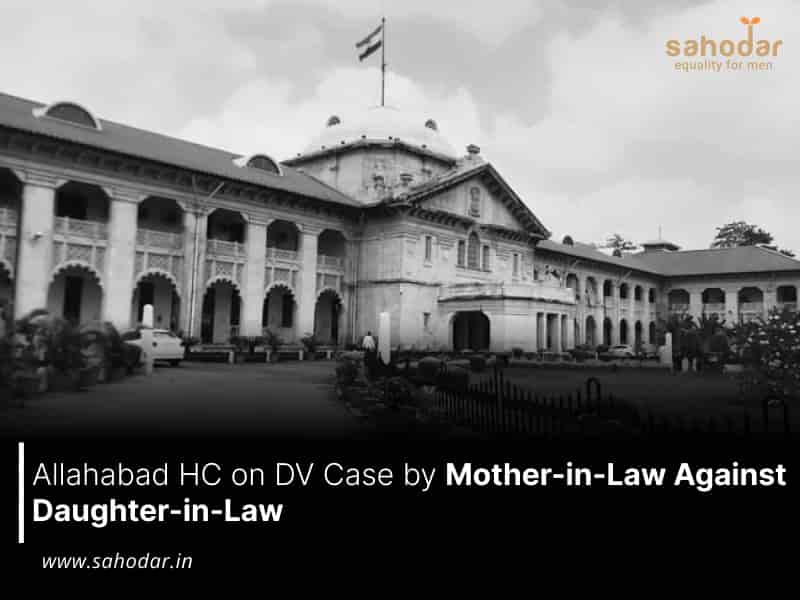In case a mother-in-law is harassed or physically or mentally tortured by the daughter-in-law or any other member of the family, certainly she could be brought within the fold of aggrieved person, the Court ruled.
The Allahabad High Court has held that a mother-in-law is entitled to file a case under the Protection of Women from Domestic Violence Act, 2005, against her daughter-in-law [Smt Garima & Others v. State of UP].
Justice Alok Mathur affirmed the trial court’s decision to summon the daughter-in-law and her family based on the mother-in-law’s complaint.
After reviewing Section 12 of the Act, the Court clarified that any aggrieved woman in a domestic relationship within a shared household can seek relief, thereby dismissing the contention that a mother-in-law is excluded from filing such complaints.
“In case, mother-in-law is harassed or physically or mentally tortured by the daughter-in-law or any other member of the family, certainly she could be brought within the fold of aggrieved person and would have a right to maintain the application under Section 12 of the Protection of Women from Domestic Violence Act, 2005,” the Court held.
The Court emphasized that the 2005 law is a welfare legislation aimed at protecting women from domestic violence and should be interpreted broadly rather than restrictively.
The judgment was delivered in response to a petition filed by a woman and her five relatives, who had been summoned by the Additional Chief Judicial Magistrate in Lucknow the previous year.
In her complaint before the magistrate, the mother-in-law alleged that her daughter-in-law was pressuring her son to move in with her (the daughter-in-law’s) parents.
She further claimed that the daughter-in-law was mistreating her and other family members, and had even threatened to file false cases against her.
The daughter-in-law’s counsel argued before the High Court that the mother-in-law’s complaint was merely a retaliatory move against the domestic violence and dowry case she had filed against her in-laws.
After considering the submissions, the Court found that the mother-in-law’s complaint did establish a prima facie case under Section 12 of the Domestic Violence Act.
While addressing the issue of maintainability, the Court analyzed the relevant provisions of the Act and stated that—
“On conjoint reading of the above sections, it can be inferred that the aggrieved person can be any woman who has lived in a domestic relationship in a shared household with the respondent. Here, in this case, the mother in law is the aggrieved woman who has shared household and lived together with the daughter in law in a domestic relationship as a joint family and therefore has a right to file application under Sec. 12 of the Act of 2005.”
Accordingly, the Court dismissed the petition contesting the summons issued by the trial court.

